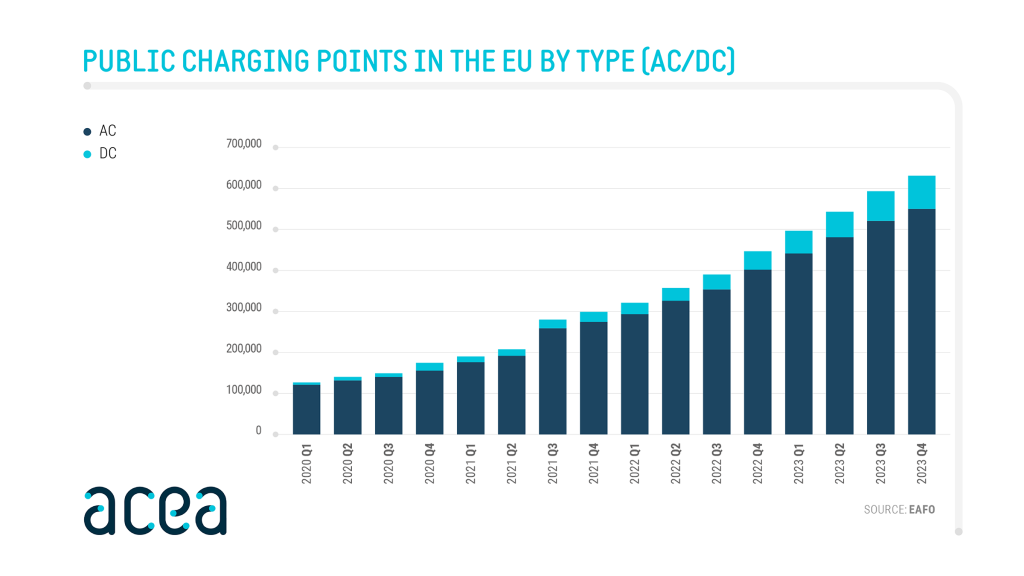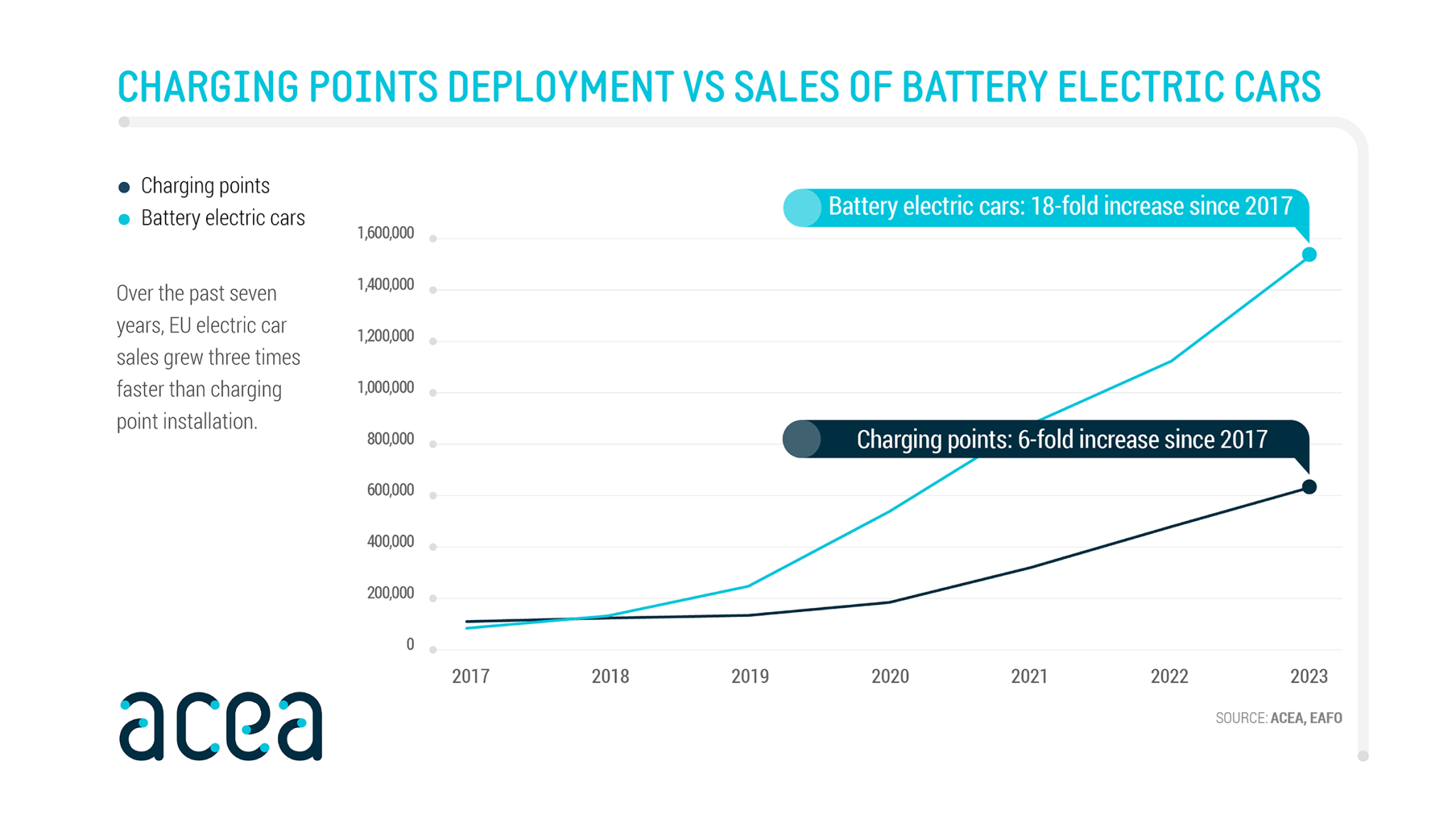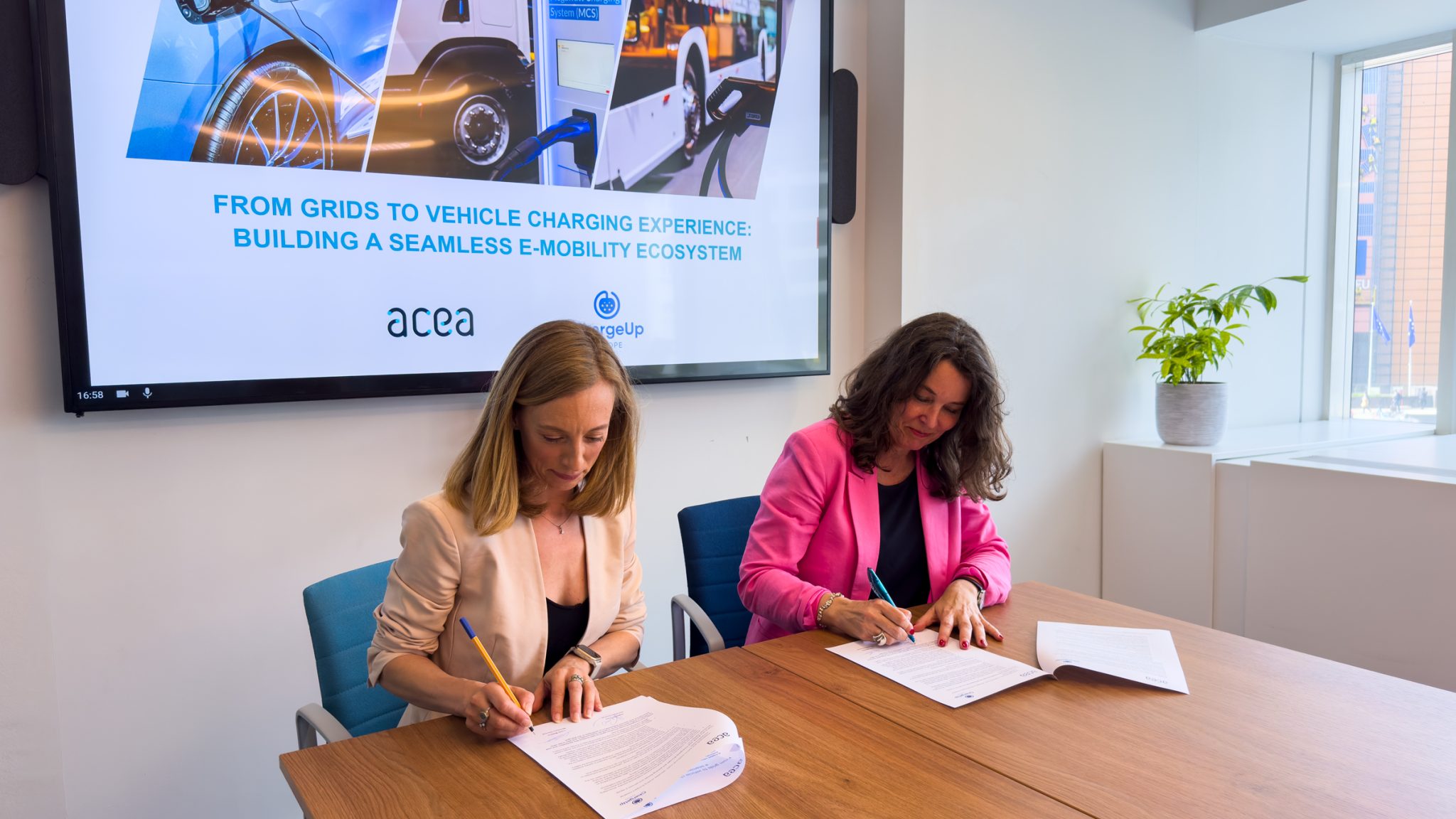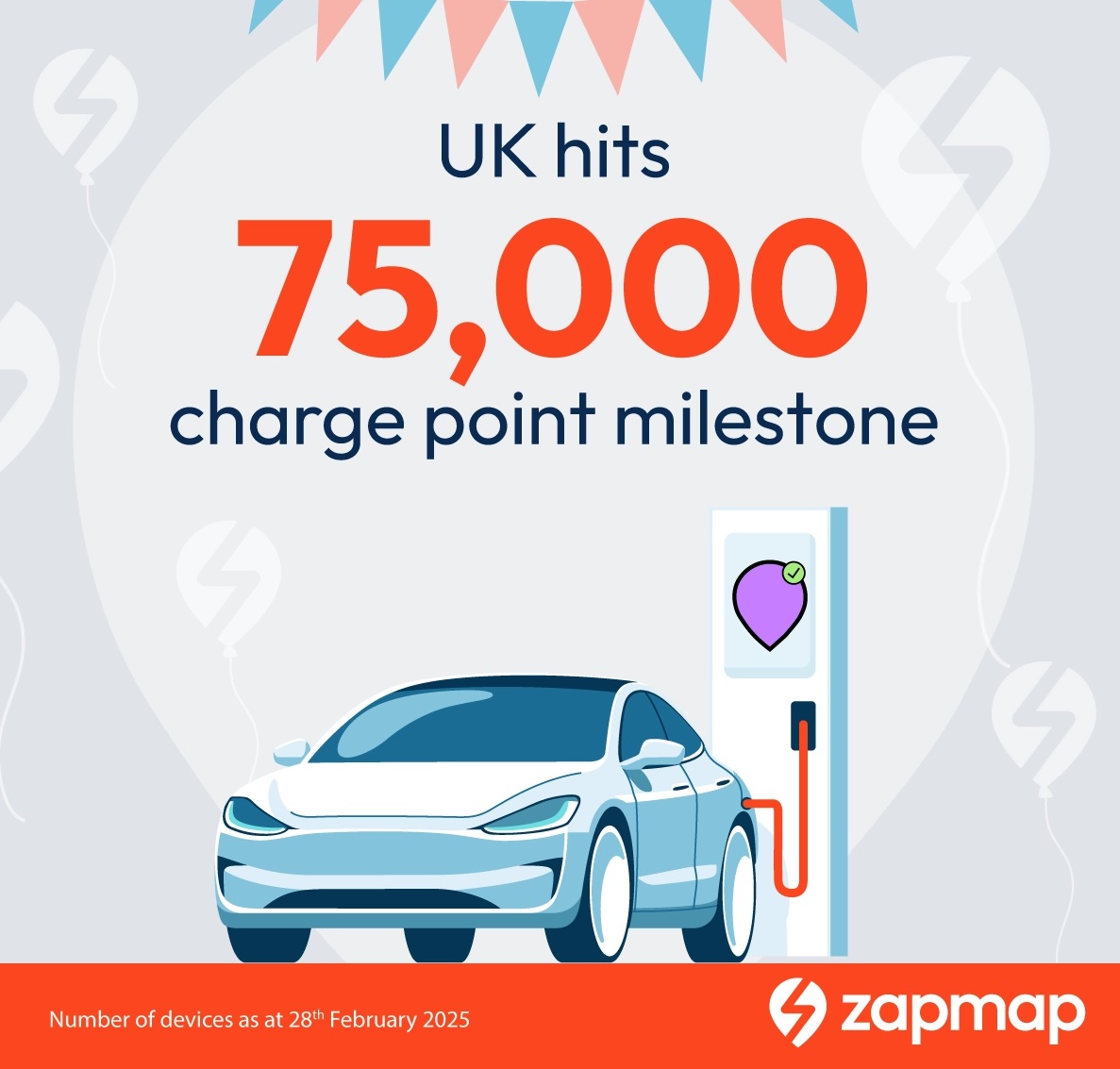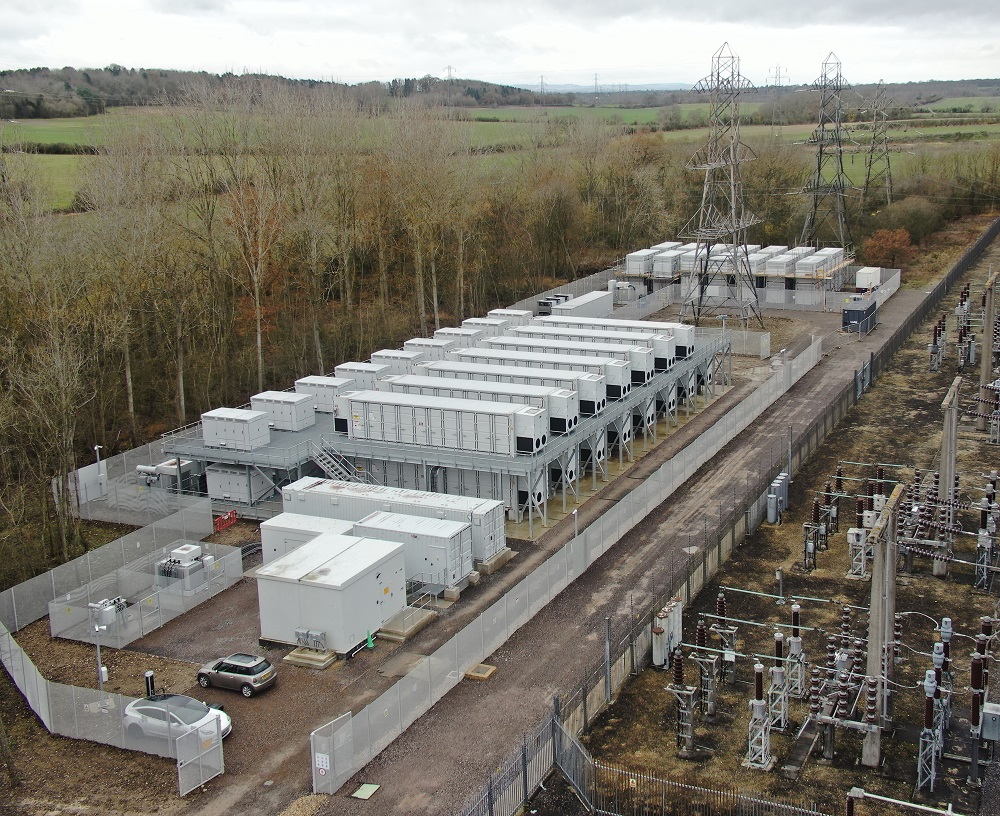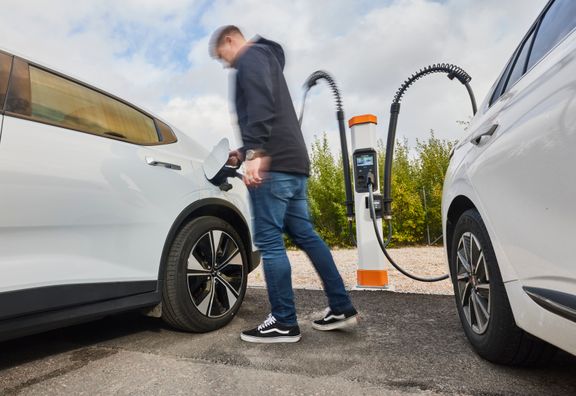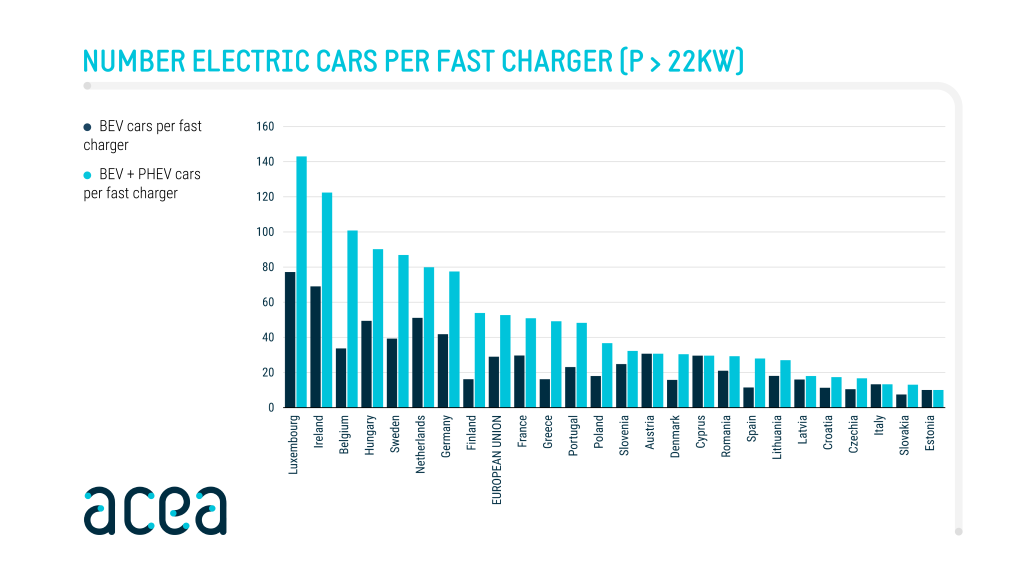
Fast chargers enable quick recharging of battery-electric vehicles (BEVs). They are critical in supporting long-distance travel with BEVs and alleviating range anxiety.
As the EU sees an increase in the adoption of BEVs, the availability and strategic placement of public fast chargers along motorways are becoming increasingly pivotal.
Currently, there are approximately three million BEVs on EU roads, with around 75,000 public fast chargers available. This translates into a ratio of roughly 30 BEVs for every fast charger. When counting plug-in hybrid electric vehicles (PHEVs) – which also rely on the same charging infrastructure – this ratio rises to about 52 cars per fast charger.
As the number of electric cars continues to grow, expanding the network of fast chargers will be vital to meet the evolving demands of electric vehicle users.
“We need mass-market adoption of electric cars in all EU countries to achieve Europe’s ambitious CO2-reduction targets,” stated ACEA’s Director General, Sigrid de Vries. “This will not happen without widespread availability of fast and convenient public charging infrastructure right across the region. Fast chargers are integral to the transition to zero-emission mobility.”
For more information on how the EU’s charging landscape is shaping up, see the ACAS’s recent Automotive Insights report, “Charging ahead: accelerating the rollout of electric vehicle infrastructure.”



